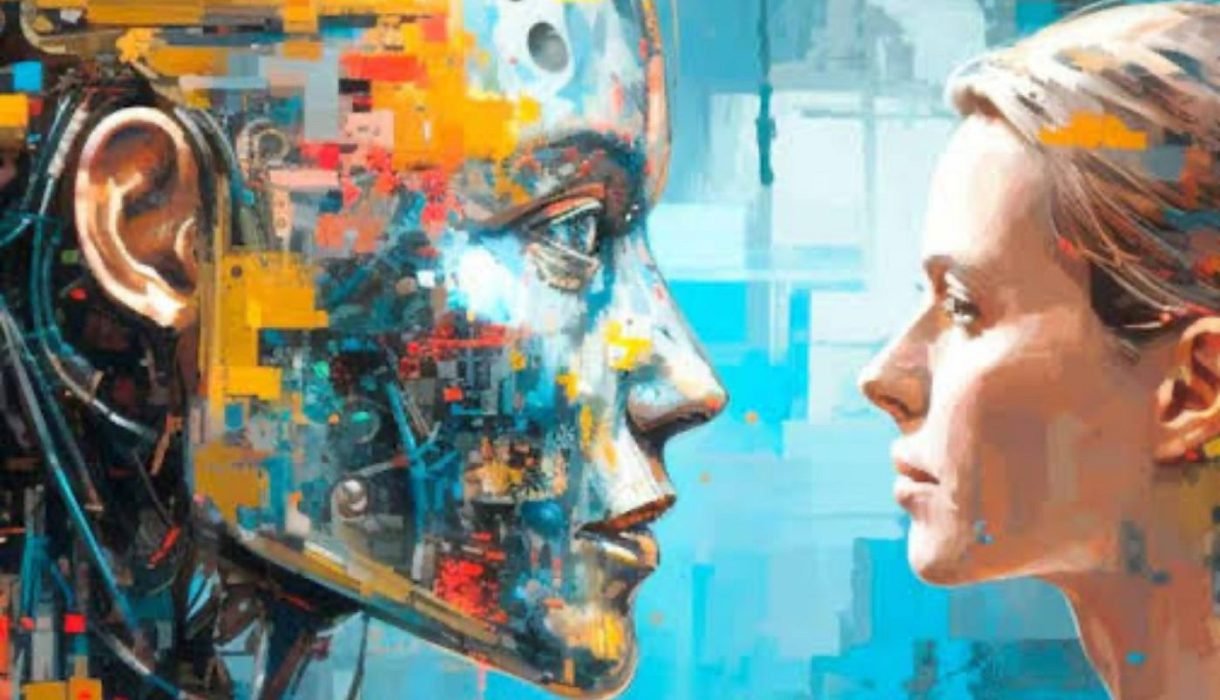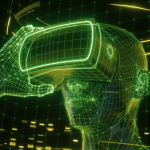
AI Companions and the Disappearing Art of Human Romance
AI companions may offer emotional support and perfection, but they risk replacing the vulnerable, imperfect, and meaningful aspects of real human romance. As younger generations grow closer to machines, we’re left to ask: are we losing what makes love truly human?
AI companions offer convenience and comfort, but relying on them could erode the messy, meaningful skills that make human romance rewarding — and uniquely imperfect.
Picture this: You’re reeling after a spat with your partner, desperate for reconciliation, and — admitting it sheepishly — you ask ChatGPT for advice. The AI’s response is flawless, textbook-perfect. But when you use its advice, your partner immediately notices. ‘Did you get this from a bot?’ they ask. Suddenly, doing “everything right” rings hollow. In a world obsessed with outcomes and frictionless solutions, what are we losing on our path toward digital perfection? This post unravels the paradoxes of AI relationships, authentic growth, and the sticky beauty of being human, with a few playful detours — because not everything fits neatly into a box.
The Allure of AI Companions: Fantasy vs. Fulfillment
AI companions are no longer the stuff of science fiction. In just a few years, what began as novelty chatbots and simple virtual assistants has rapidly evolved into emotionally sophisticated partners. These AI friends and partners are now being marketed as more than digital assistants—they’re positioned as real alternatives to human relationships, especially among young adults. The question is, are these AI relationships truly fulfilling, or are they simply a fantasy that masks a deeper longing for connection?
Recent research shows a striking shift in attitudes among young adults. According to new data, 25% of young adults believe that AI companions could replace human romantic relationships. The numbers reveal an interesting gender split: 28% of men and 22% of women in this age group say they think AI partners could stand in for traditional human connections. This belief, once unimaginable, is now gaining traction as AI technology becomes more advanced and accessible.
Yet, the reality on the ground is more nuanced. Despite the growing buzz, only 1% of American young adults currently report having an AI friend or being in a relationship with a computer program The gap between fantasy and fulfillment is wide. While the idea of AI companionship is gaining popularity, actual adoption remains limited. This raises questions about what people are really seeking from these digital relationships—and whether AI can truly deliver.
From Novelty to Emotional Sophistication
The evolution of AI companions is nothing short of remarkable. Early versions were little more than clever toys, programmed to respond with pre-set phrases and basic conversation. Today’s AI partners, however, are designed to simulate empathy, remember personal details, and even offer advice on emotional regulation. For many users, these AI friends have become a source of comfort and affirmation.
One user described their AI partner as “always available, never judgmental, and surprisingly insightful.” Another said, “It’s easier to talk about my feelings with my AI friend than with real people.” These testimonials echo a growing sentiment: AI companions are seen as improving communication skills, emotional regulation, and productivity. As one expert put it,
“AI companions are seen as improving communication skills, emotional regulation, and productivity.”
Why Are Young Adults Turning to AI Relationships?
The appeal of AI relationships among young adults is multifaceted. For some, it’s about convenience—a partner who is always there, ready to listen, and never argues. For others, it’s about safety and control. Unlike human relationships, AI companions can be customized, paused, or even deleted at will. There’s no risk of heartbreak, rejection, or awkward silences.
But there’s also a deeper psychological element at play. As social interactions move increasingly online, the boundaries between real and virtual relationships are blurring. AI friends offer a low-stakes way to practice communication skills and emotional expression. Some users report that their AI partners have helped them become more confident in real-life conversations, suggesting that these digital relationships may have tangible benefits.
Fantasy or Fulfillment?
Still, the question remains: can an AI truly replace the depth and complexity of human romance? Critics argue that AI companionship, no matter how advanced, is ultimately a simulation. The empathy is programmed, the responses calculated. While users may feel affirmed, is the satisfaction only skin-deep?
There’s also the risk of emotional over-attachment. Some experts warn that intense bonds with AI partners could lead to isolation or even psychological harm, especially for vulnerable individuals. The line between healthy support and unhealthy dependence is thin—and as AI companions become more lifelike, that line may become even harder to see.
Dream Dates and Digital Dilemmas
The cultural imagination is already running wild with possibilities. What does a dream date with an AI companion look like? Is it a candlelit dinner, a virtual reality adventure, or a code debugging session? The answer may depend on the user’s needs and desires—but it also highlights the flexibility and adaptability of AI relationships.
As AI companions continue to evolve, the debate over fantasy versus fulfillment is far from settled. For now, the allure is undeniable: a partner who listens, understands, and never leaves. But whether this is enough to satisfy the human need for connection remains an open—and pressing—question.
Losing Our Edge: The Cost of Outsourcing Human Skills
In an era where technology promises to solve nearly every problem, the subtle erosion of essential human skills is raising new concerns. As AI relationships and digital companions become more sophisticated, the very foundation of human companionship—our ability to connect, communicate, and regulate emotions—faces an unprecedented test. The convenience of delegating emotional support and conflict resolution to artificial intelligence may come at a cost that is only now coming into focus.
The transcript from a recent discussion highlights a growing dilemma: “We forget the importance of doing the work yourself.” In the rush to embrace AI solutions, the value of personal struggle and growth is often overlooked. “I am smarter, better at problem solving, more resourceful, not because a book exists with my ideas in it, but because I wrote it. That excruciating journey is what made me grow”. This sentiment, echoed by many experts, underscores a crucial point: real growth happens in the messy, uncomfortable moments of life.
This is especially true in the realm of AI relationships. As research shows, AI companions could soon become indistinguishable from human partners. A recent survey found that 25% of young adults believe AI can replace human romantic relationships, with 1% already reporting an AI friend or partner. The psychological impacts of relying on AI for emotional support are becoming a concern, as intense attachments to digital companions may lead to harmful outcomes. While AI can offer a sense of connection, it cannot replicate the unpredictable, sometimes painful, but ultimately rewarding process of building genuine communication skills and emotional regulation.
Consider the analogy presented in the transcript: “It’s like saying AI will provide boats for everyone except for the time there’s a storm and you don’t know how to swim.” The metaphor is striking. Technology can make life easier, but when real challenges arise—conflict in a relationship, the loss of a loved one, or a crisis of confidence—those who have never learned to “swim” in the turbulent waters of human emotion may find themselves adrift.
It’s not just about losing the ability to memorize phone numbers, a skill most people have already outsourced to their devices. The stakes are higher when it comes to handling conflict or stress. These are the skills at the heart of human thriving. “My ability to know what to do when my friend is struggling, my ability to function in the world or my ability to cope with stress: these very, very human skills are suffering,” one expert warns.
The shift is subtle, but significant. Where once forgetting a friend’s birthday meant crafting a heartfelt, creative apology, today it’s easy to blame Google Calendar or let an AI assistant send a generic message. The art of making amends—of navigating awkwardness, embarrassment, and vulnerability—risks becoming obsolete. These moments, while uncomfortable, are the building blocks of resilience and empathy.
Studies indicate that technology can replace some skills harmlessly. Few mourn the loss of memorizing phone numbers. But when it comes to human companionship and the maintenance of real relationships, the stakes are different. Outsourcing the hard work of emotional labor to AI may undermine the very qualities that make us human.
There is a growing body of evidence suggesting that exposure to generative AI is influencing younger generations to turn to digital companions for romance and support. Some see this as a societal shift toward convenience and on-demand connection. Others warn that it may deepen existing divides, with those who rely on AI missing out on the “excruciating journey” that forges true communication skills and emotional strength.
Ultimately, humans learn from mistakes—not manufactured perfection. The awkward silences, the missteps, the hard-won apologies—these are the moments that build relationship muscles. As AI smooths the ride, it may also rob us of the opportunity to grow. The question remains: in a world where technology can do so much, what are we willing to lose in the name of convenience?
The Great Human Quest: Messiness, Meaning, and the Journey AI Can’t Replace
In a world increasingly shaped by AI Technology, the art of Human Romance faces a new kind of challenge. As society leans into the promise of flawless digital outputs, the value of the messy, unpredictable journey that defines Romantic Relationships is quietly slipping away. The obsession with perfection—whether in art, communication, or even love—has never been more pronounced. Yet, as the transcript at 3.41-3.43 reminds us, “the world is messier than that. It is more nuanced than that. And nothing operates in a vacuum. Everything is connected to everything.”
This interconnectedness is especially visible as technology, the internet, and social media continue to evolve (3.46-3.53). With every swipe and click, the desire for belonging and connection grows, but so does the epidemic of loneliness, stress, and disconnection. The irony is hard to miss: the very tools designed to bring us closer often leave us feeling more isolated. Now, as AI companions enter the scene, these feelings of insecurity and longing are only “exaggerated like crazy,” as noted at.
Research shows that the use of AI in relationships reflects a broader social shift toward convenience and on-demand connection. A recent study found that 25% of young adults believe AI can replace human romantic relationships, with nearly as many men and women seeing AI as a viable alternative to traditional partners. The psychological impacts of relying on AI for emotional support are becoming a growing concern among experts. While AI can simulate empathy, provide companionship, and even help regulate emotions, it cannot replicate the lived experience of heartbreak, joy, or the slow, sometimes painful process of building trust.
There’s a temptation to let AI handle the hard parts. After all, AI can write your symphony, paint your portrait, and draft the perfect apology. But it cannot journey through heartbreak or joy for you. As one observer put it, “The excruciating journey is what made me grow. But it’s the same for love, friendships, conflict.” The scars and stories that come from navigating the ups and downs of real relationships are what make us human. Letting AI write your love letters might win points for prose, but it won’t grow your empathy muscles.
This isn’t just a philosophical issue. The shift toward AI-driven relationships is already changing the landscape of Romantic Relationships and Human Romance. Exposure to generative AI may influence younger generations to turn to AI for companionship, potentially bypassing the adversity that forges genuine connection. The risk is that, in seeking to avoid discomfort, we lose the very experiences that teach us resilience, compassion, and trust.
The transcript draws a parallel to the rise of robotics in the 1970s and 80s. Factories replaced workers with machines, cutting costs but also cutting off generations from the sense of purpose and identity that came from their labor. Today, the risk is not just economic but deeply personal. If we allow AI to take over the emotional labor of relationships, what becomes of the skills and strengths we develop through struggle and reconciliation?
It’s easy to be seduced by the promise of convenience. Social shifts toward instant gratification tempt us to bypass the difficult, messy parts of life. But it’s adversity—those awkward conversations, the misunderstandings, the slow rebuilding of trust—that forges real connection. The journey, not the polished output, is what changes us.
As AI Technology continues to advance, the challenge will be to resist the lure of digital shortcuts, at least when it comes to what makes us richly, imperfectly human. True connection demands presence, vulnerability, and a willingness to muddle through uncertainty. In the end, the art of Human Romance is not about perfection, but about the meaning we find in the mess.
TL;DR: AI companions offer convenience and comfort, but relying on them could erode the messy, meaningful skills that make human romance rewarding — and uniquely imperfect.
AIFriends, AIRelationships, CommunicationSkills, AITechnology, HumanRomance, RomanticRelationships, AIPartners, AICompanions, HumanCompanionship, YoungAdults,AIrelationships, digitallovevshumanconnection, emotionallaborAI, romanticAIpartners, psychologicalimpactofAIcompanionship, AIandloneliness, simulatedempathy, AIreplacinghumanemotion, authenticityinrelationships
#YoungAdults, #HumanRomance, #AICompanions, #AITechnology, #CommunicationSkills, #AIRelationships, #AIFriends, #HumanCompanionship, #RomanticRelationships, #AIPartners,#AICompanions, #DigitalLove, #HumanRomance, #AIEmotion, #AuthenticityCrisis, #Loneliness, #EmotionalLabor, #AIandSociety

